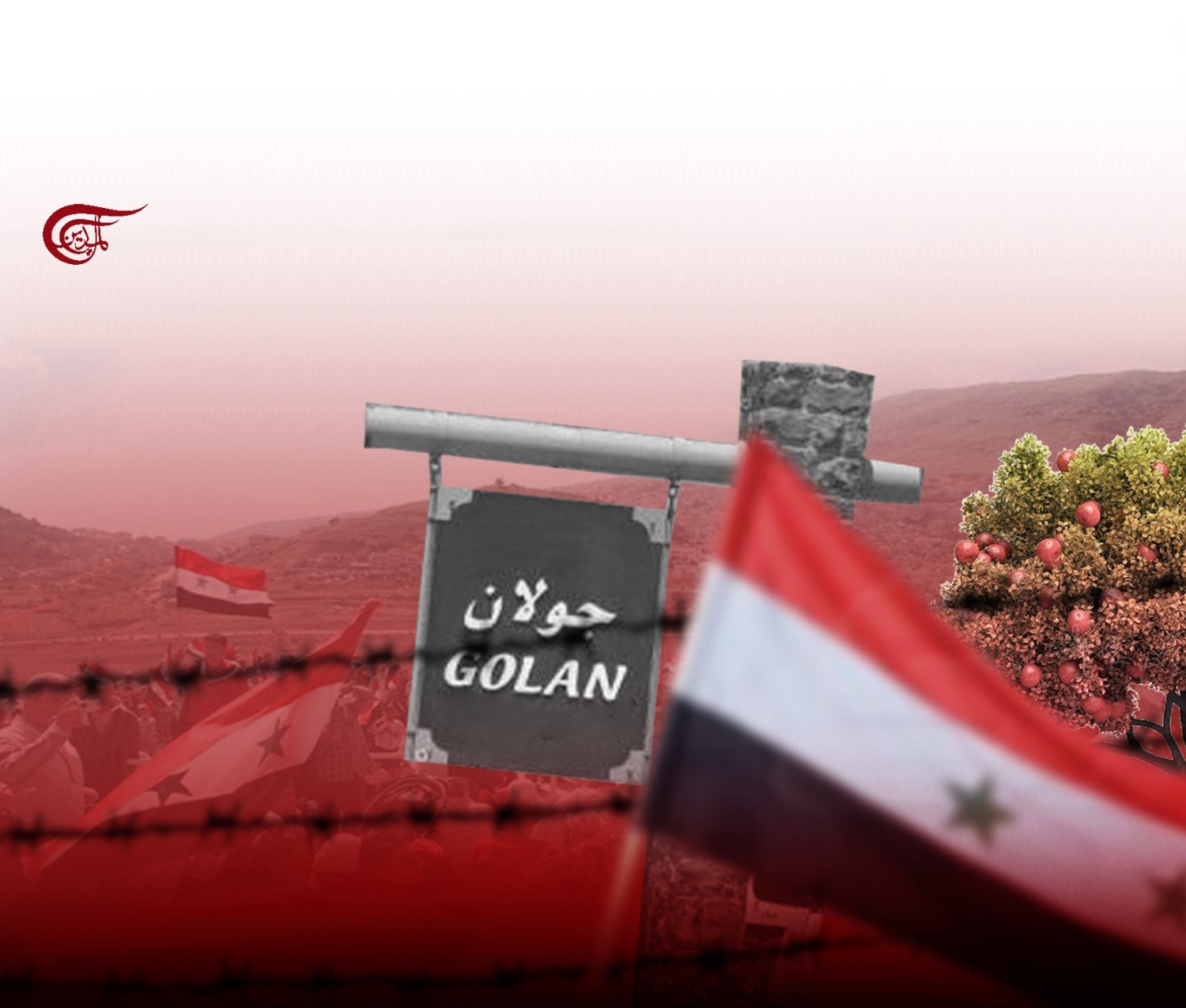Fruit season in the Golan Heights … defying the restrictions of the Israeli occupation
Since its occupation of the Syrian Golan in June 1967, "Israel" has not only robbed the natural resources but has been striving every day to tighten the screws on farmers in the Golan to undermine their steadfastness on their land and their bond to the land.
Since its occupation of the Syrian Golan in June 1967, "Israel" has not only robbed the natural resources but has been striving every day to tighten the screws on farmers in the Golan to undermine their steadfastness on their land and their bond to the land.
The Israeli occupation built settlements in the Golan on an area of 246 km2, which is equivalent to 21% of the total occupied area of the Golan. More than 80 km2 of this area is cultivated with vegetables and fruits.
There are only 5 towns left in the occupied Golan, in which 26,000 Syrian citizens live, namely: Majdal Shams, Masada, Baqata, Ain Konya, and Ghajar. Apple and cherry farming makes up about 50% of their income.
The area of land cultivated with apples and cherries in the Golan is about 4,500 dunums; 4200 dunums of which are facing the danger of the occupation, which is building wind turbines on it.
Since August 2014, the Israeli occupation continues to close the Quneitra crossing, which is the only means for the people of the occupied Golan to communicate with their homeland, Syria, and to visit their families after the occupation dispersed them.
Israeli authorities prevent selling cherries and apples to the Syrian markets, despite Damascus' continuous calls to the international community to put pressure on the Israeli occupation to open the crossing.
We will not submit... whatever the sacrifices
Ali Suleiman and his family are busy harvesting their cherry crop, which is considered the best in the world, according to what he told Al Mayadeen English, “This is not only my opinion, but this is what studies have proven. Golan cherry is characterized by its unique taste, beautiful color, and distinctive size."
Last year’s production decreased by half compared to the previous season, and this year’s production is not good at all because of many factors that Suleiman mentioned, "Storms and frost waves affected production negatively, but the main problem lies in crops recession, the occupation authorities prevent the marketing of our products to the homeland and occupied Palestine."
In recent years, the cherry season has become an important event for the Palestinians in the occupied territories of 1948, waiting for it every year in order to visit the occupied Syrian Golan. Suleiman explained, "At a time when the occupation authorities excluded our Arab villages from any investment projects in tourism and economy, our Palestinian brothers shared with us the harvest rituals. They used to come and buy our crops and support our steadfastness."
“The reopening of the Quneitra crossing will restore hope and bring life back to our seasons." With this phrase, he ended his speech, and added, “The occupation will not force us to submit to its arbitrary measures, whatever the sacrifices are."
Syrian farmers under dire economic situation due to the restrictions of the occupation
"Do you dream of a village house surrounded by fields? Now you can make your dream come true for free."
Advertisements published by the Israeli Ministry of Agriculture everywhere in the occupied Golan, say it will give every settler farmer a plot of land for free, and the Ministry will pay 40 % of the cost of land preparation and planting procedures.
In this context, the agricultural engineer, Layal Farhat, told Al Mayadeen English, “Firstly, all these settlements are built on the ruins of 130 demolished Syrian Arab villages that were destroyed by the occupation in 1967."
And she continued, “While the Syrians in the Golan get 170 cubic meters of water to irrigate one dunum, which already constitutes 20% of the annual need, Israeli settlers get 875 cubic meters to irrigate a dunum, which is 25% more than the annual need."
After the marketing to Syria stopped, apple growers went through very difficult years, as the apples of the Israeli settlements began to compete with the Syrian Golan apples, and this led to a drastic drop in prices, as Engineer Farhat explained to us, saying: “Here, the occupation authorities provide the settlers with water and equipment and give them financial grants to grow apples that are now competing with our crop in terms of quality and price. Unfortunately, we were unable to take any action other than establishing ten public refrigerated warehouses that would accommodate about 26,000 tons of apples annually to better control the marketing process."
In 2005, the Syrian government began buying crops from Syrian farmers in the Golan through the Quneitra crossing as a means of supporting their steadfastness and adherence to their Syrian identity.
During the years 2007 and 2008, the occupation authorities prevented the sale of the crop and arrested the head of the apple marketing committee in the occupied Syrian Golan, Youssef Shams.
The last time Syria bought crops from farmers in the Golan was in 2013, and it amounted to 18,000 tons before the Israeli occupation closed the Quneitra crossing.

 Sara Salloum
Sara Salloum
 5 Min Read
5 Min Read












